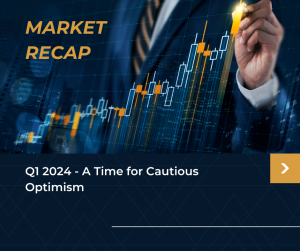Global Diversification and Your Portfolio

Many consider diversification to be holding smaller positions in a number of companies that you expect to perform well in the long term. While this is true, many investors trap themselves into exclusively investing within their home country, and many living in North America rarely venture outside Canada and the United States. This home country bias can have devastating effects over the long term when considering the potential returns exemplified by global diversification.
When examining Canada as the home country, many Canadians take comfort in what is familiar, and by nature, Canadians have historically been relatively risk averse, but the build back better initiatives from numerous countries present unique opportunities to investors as we move through COVID-19 into the world beyond, and we as investors should not allow ourselves to fall prey to the home country bias.
Without question, diversification is one of the most important elements of modern finance and by nature, a global portfolio implies that your investments should produce a risk adjusted return superior to that of any individual country held in isolation (home country bias). Current expectations from the Organisation for Economic Co-Operation & Development (OECD) forecasts average Canadian real GDP per capita (net of inflation) at 2.34% for the period between 2020-2030 which is near the bottom of the G20 peer group of developed nations which averages 3.56% real GDP expectations, primarily resulting from low labour productivity and resource utilization.
Pairing this outlook with the home country bias would be detrimental to your future wealth creation as not only are you limiting yourself to a smaller pool of investments with potentially limited growth, but you are also more susceptible to higher interest rates, currency devaluation and potentially a shrinking economy if growth rates do not pick up speed. As such, we can look to global diversification to fight this.
A relevant criticism of the strategy given what has historically happened during a major crisis is that markets generally tend to crash together (increased correlation) when the objective is decreased correlation for your investments. However, this criticism from skeptics of global diversification misses the bigger picture and only examines very short timeframes. Investors who have a planning horizon measured in decades should not be worried about the increased correlation resulting from systemic crashes, but rather they should be worried about long drawn-out bear markets within specific economies because while short-term downturns (March/April 2020) are partly based on panic and broad-based selling, long term performance is measured by economic performance/underperformance.
Therefore, pain in the market is distributed across the globe during a major crisis, and diversification is “weakest”, but over the long term you will see meaningful differences between your investment portfolio versus the home bias portfolio. One reason for this is the increase in risk aversion during a downturn, but after the downturn ends, the companies you own will return to their normal course of business and resume creating wealth through realized economic performance. This realized performance varies from country to country, and there is no reason to stay in one region as you will want to reap the benefits sewn by numerous nations with excellent economic performance. As such, global diversification protects you against the adverse effects of overconcentration in countries with poor long-term performance and outlooks, and has historically had less risk and greater protection for investors when holding high quality international businesses.
OECD Reference: OECD (2022), Real GDP long-term forecast (indicator). doi: 10.1787/d927bc18-en (Accessed on 10 January 2022)
https://data.oecd.org/gdp/real-gdp-long-term-forecast.htm#indicator-chart
Written by Adam Prittie
Mandeville Private Client Inc. is a Member of the Investment Industry Regulatory Organization of Canada and Member of the Canadian Investor Protection Fund.
Michael Prittie and Mandeville Private Client Inc. do not make any representation that the information in any linked site is accurate and will not accept any responsibility or liability for any inaccuracies in the information not maintained by them, such as linked sites. Any opinion or advice expressed in a linked site should not be construed as the opinion or advice of Michael Prittie or Mandeville Private Client Inc. The information in this communication is subject to change without notice.
Insurance products and services are offered by licensed representatives operating through Mandeville Insurance Services Inc. (a licensed life insurance agency and affiliate of HUB Financial).
Commissions, trailing commissions, management fees and expenses all may be associated with mutual fund investments. Please read the prospectus before investing. Mutual funds are not guaranteed, their values change frequently and past performance may not be repeated. Mutual funds, stocks, bonds, and financial planning are offered through Mandeville Private Client Inc.





